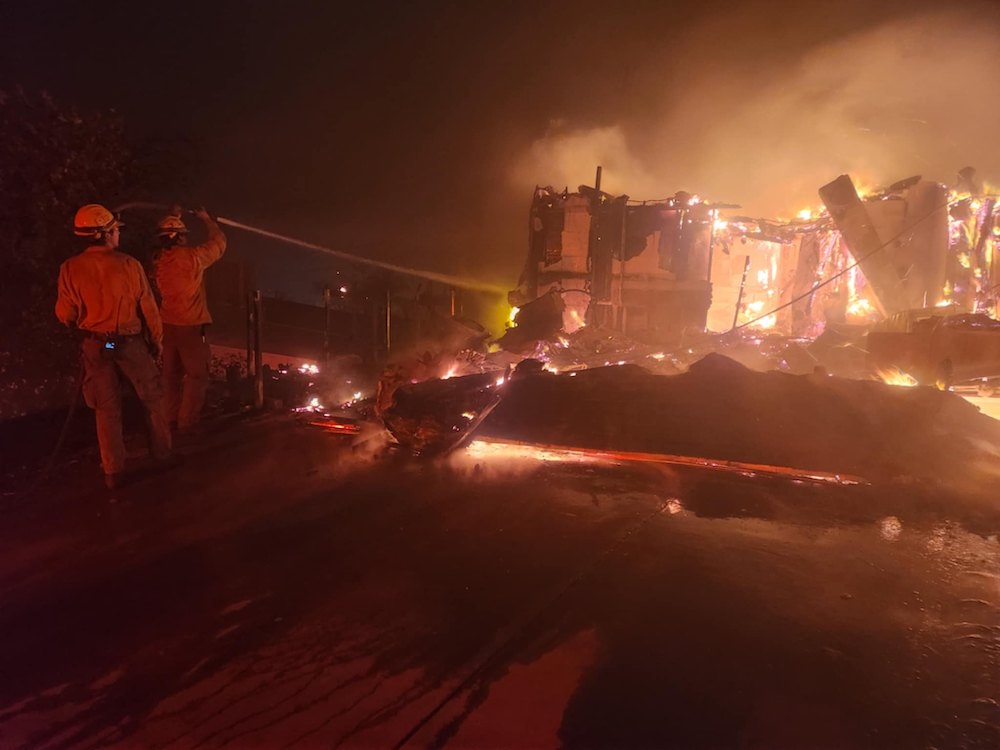
Everyone knows someone who has lost everything. Let’s start there. The devastation, both in scope and severity, is unlike anything our city has lived through before. Even if you’ve been on the periphery of the disaster, the events of the past week must have rattled you. You saw the smoke. You endlessly refreshed Watch Duty and clicked through livestreams. You packed your go bag. You evacuated but came back. Inevitably, these are all trivial inconveniences when compared to those who suffered their own personal apocalypse.
I’ve been trying to think through how I and others should steel our minds to get through this thing. What are the best practices? What’s the mental approach? What are the optimal behaviors? Honestly… who the hell knows…
The best I could do is a list of dos and don’ts that have been on my mind as the danger has evolved. It’s not exhaustive, and it’s only one man’s opinion, but maybe it will help. At the very least, thinking these issues through together keeps us connected. And that’s more important than ever.
DO keep your guard up: Thankfully, both the Palisades Fire and Eaton Fire have seen substantial progress and containment over the past two days. However, per the L.A. Times, the National Weather Service has issued warnings of a “particularly dangerous situation” for portions of Los Angeles and Ventura counties heading into this week. This includes wind gusts ranging from 45 mph to 70 mph, dry air and a higher risk of rapid fire spread and extreme fire behavior. Basically, it’s not over yet, so keep the Watch Duty app handy.
DON’T spread misinformation: I think it’s only human nature to share the craziest stories we can find during a crisis like this, as it reinforces a sense of helplessness that we’re all sharing. For others, maybe it validates a certain pre-conceived notion or narrative. To date, I’ve everything seen from AI-generated videos of the Hollywood Sign burning to unsubstantiated claims of arson. None of this is helpful, and some of it is dangerous and it drains resources from officials who have to fight the falsehoods. When you see something that you feel like you want to share, vet the sources, investigate their claims, and be smart and considerate about what you disseminate to your social network. Honestly, in the new era of AI-driven content, this should be the standard protocol for anything you consume.
DO reach out: It might seem awkward or impossible to find the right approach when reaching out to those who have lost everything. Do they even want to hear from us? What do we say? The Times explored this issue in a recent article, and while the answer is always situationally dependent, there is a general guideline to follow: “According to experts in processing grief and trauma, the answer is there is no right answer. But the most important thing you can do is be brave and reach out.” Based on what I’ve observed so far, I think this is right.
DON’T go into the evacuation zones until it’s safe: There are good reasons that authorities are keeping folks in many of the burn areas from returning to their homes. Many of the zones under mandatory evacuation are still unsafe to enter due to downed power lines, unsafe gas lines, or structures with unstable foundations. Wait for the go-ahead before going back to assess damage. And if you’re sneaking in there just to capture video or drone footage for social media clout…. honestly… go to hell.
DO volunteer in the coming weeks/months: The supply of volunteers will never be higher than in the midst of a disaster like this. And it’s been awesome to see our city hunker down and do good works. It’s amazing what we can accomplish when truly united. But even once the last ember has been extinguished and we (finally) get our first solid rainstorm of the season, the need for volunteers won’t end. There will plenty to do to assist in relocation, cleanup and the like. Keep this Google Sheet on file, and even if your preferred volunteer opportunity is booked up, maybe think to reach back out in the weeks and months to come.
DON’T get scammed: I touched on this in my previous dispatch, but it’s worth repeating: Disasters bring out the scammers in droves. This goes both for those soliciting fake charitable donations and those looking to take advantage of the victims who lost their homes, whether it is insurance fraud or price gouging on temporary housing. The LA County Department of Consumer and Business Affairs offers Protection Tips to avoid scams after a disaster. The County also has a portal where you can report price gouging. Great resources.
DO the best you can: Make no mistake, this is a trauma we’re all facing together, and we each have to deal with it in our own way. Don’t judge yourself for how you feel or how you need to process it. Help out where you can, even if that just means supporting your immediate family and keeping them safe. Most of all, hold on to any sense of empathy you have right now. The muscle memory of learning to care for others is what’s going to carry us through the current crisis. It will also be the tool that we use to cut through the inevitable political B.S. to come, and actually build a better, safer future.
Hoping for calm winds and a (miraculous) spot of rain. Will send more words soon.
Want to get the best things to do in L.A. sent straight to your inbox? Join over 60,000 Angelenos who subscribe to our twice weekly email newsletter!



